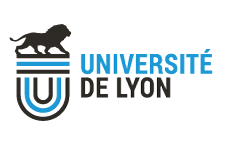PRIMES > Research > Socio-economic impacts
Socio-economic impacts
Research themes of high societal incidence
Cancers represent a multitude of diseases and is the most important cause of death and morbidity in Europe after cardiovascular diseases. At the National level, the questions of cancer and ageing are given highest priority in the domain of health research, providing strong societal impact for the quality of life and for the economy. Ageing-related diseases are part of the axes of the Research and Innovation National Strategy (SNRI) and the support to innovative radiotherapy is one of the recommendation points of the 2007-2013 Cancer Plan.
Like the whole Europe, France faces the immense challenge of unprecedented increase in life expectancy. Although this state of affairs is the essentially positive outcome from multiple improvements in health care and socioeconomic circumstances, it nevertheless presents great strains in terms of increasing importance of age-related health conditions.
The new achievements anticipated from the projects are expected to improve the early diagnosis of targeted diseases, improve the treatment of cancers and thus participate to a better quality of life. Age related diseases including cardiovascular diseases, stroke, brain degenerative diseases, osteoarticluar diseases are the first cause of acquired disability, the second cause of death and account for 10 % of healthcare cost in western countries. Early screening and stratification of risk through imaging may improve our knowledge and may have a significant socioeconomic impact.
Communication
The laboratories and teams that are part of the PRIMES initiative have a long record of high-impact publications in peer-reviewed journals. The type of PRIMES topics and results, and the size and importance of its forthcoming international projects, will undoubtedly lead to a sustained publication flux in these high-impact journals.
Another important aspect is the participation in international meetings for disseminating results and promoting networking. The PRIMES project will boost this process by gathering more people on interdisciplinary topics, elaborating a coherent “conference strategy” on a regular basis and funding travels and accommodation costs as well as registration fees for the LabEx partners including early-stage researchers.
PRIMES will also participate to science days (Fête de la Science) and Café des sciences in the Rhône-Alpes–Auvergne region to communicate and debate about its research towards the citizen.



 Welcome
Welcome PRES Lyon
PRES Lyon Contact us
Contact us Archives
Archives WebAdmin
WebAdmin